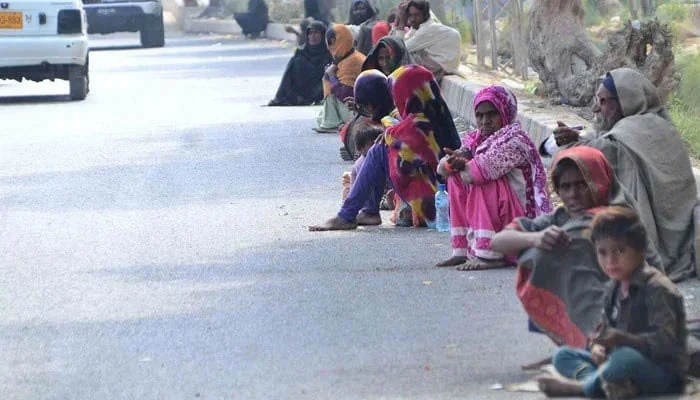In a decisive move to address the persistent issue of begging in Karachi, the Sindh High Court (SHC) has directed the city’s traffic police to ensure that begging is entirely prohibited within the metropolitan area. This directive, issued on January 29, 2025, responds to a petition highlighting the harassment and inconvenience caused by individuals soliciting alms at traffic signals and other public spaces.
The court’s order mandates the Inspector General of Traffic Police to implement measures that prevent any form of begging, regardless of the individual’s gender. This encompasses men, women, children, and transgender persons, ensuring a comprehensive approach to the issue. The petition specifically called for action under Section 17 of the Transgender Persons (Protection of Rights) Act and Section 118(1)(a)(iv) of the Cantonment Act, aiming to protect citizens from harassment and uphold their fundamental rights under Article 25 of the Constitution.
This recent directive aligns with previous efforts to curb professional begging in Karachi. In May 2024, Additional Sessions Judge (West) Sohail Ahmed Mashori instructed the Karachi Additional Inspector General of Police to reactivate the police’s anti-beggary cell, which had been inactive since 2018. The judge emphasized the need for immediate and effective action against professional beggars, including their arrest and the initiation of legal proceedings in accordance with relevant laws.
The prevalence of beggars at traffic signals, parks, and other public areas has long been a concern for Karachi’s residents. The SHC’s recent order aims to address these concerns by enforcing existing laws and ensuring that the city’s public spaces are free from the nuisance of begging. The court’s comprehensive approach underscores its commitment to safeguarding the rights and well-being of all citizens, promoting a safer and more orderly environment in Karachi.
As the city moves forward with this directive, collaboration between law enforcement agencies, municipal authorities, and social welfare organizations will be crucial. Such cooperation is essential to effectively implement the court’s orders, address the root causes of begging, and provide support for vulnerable populations affected by this crackdown



Comments (0)
No comments yet. Be the first to comment!
Leave a Comment